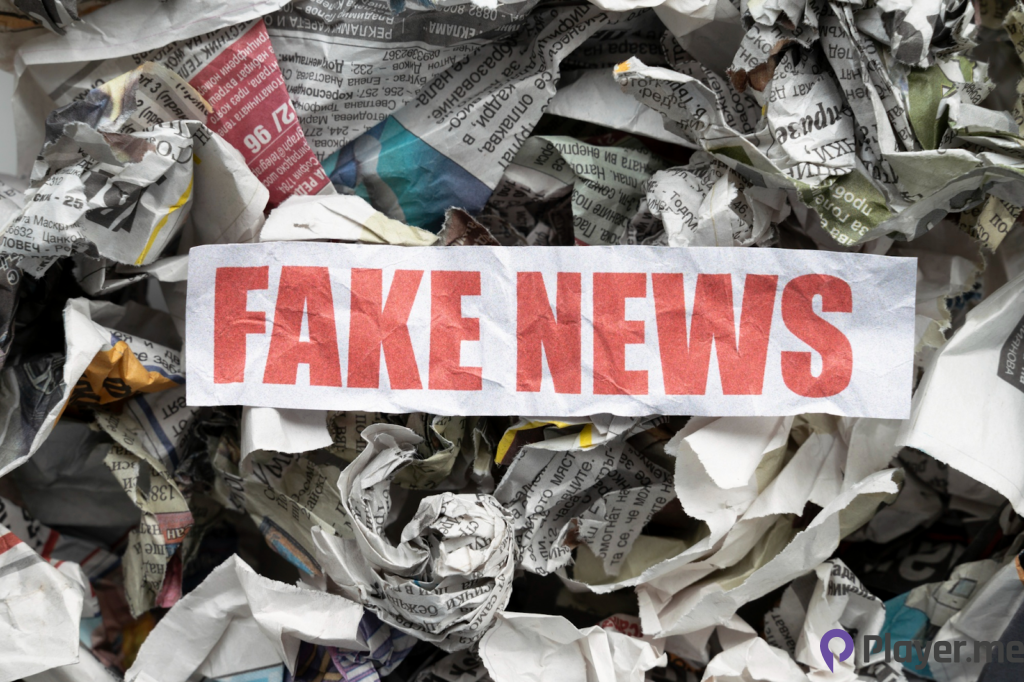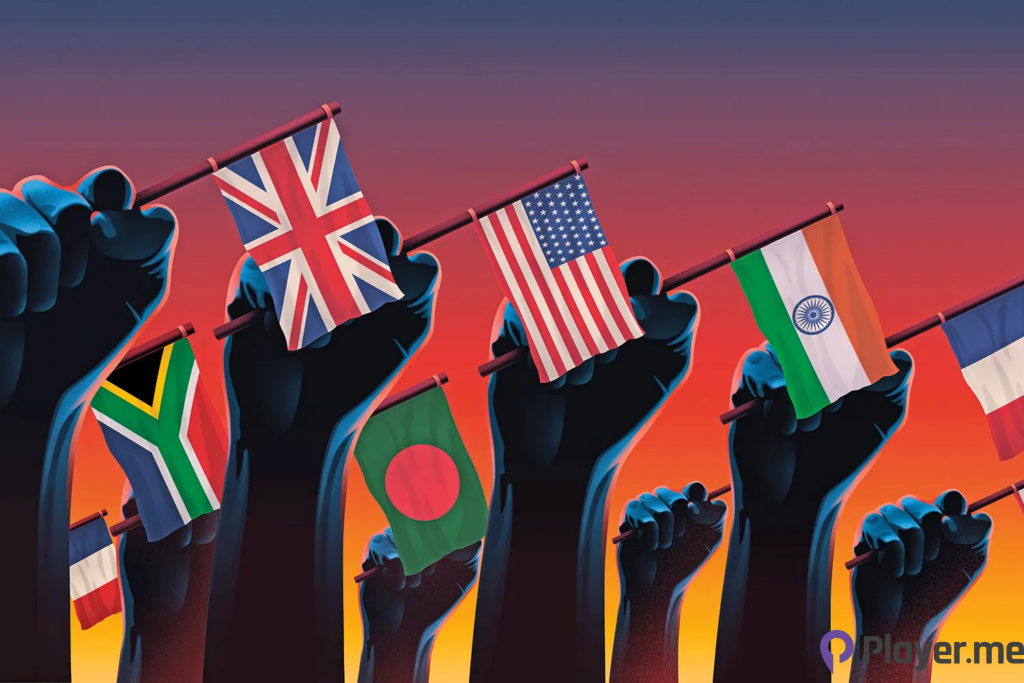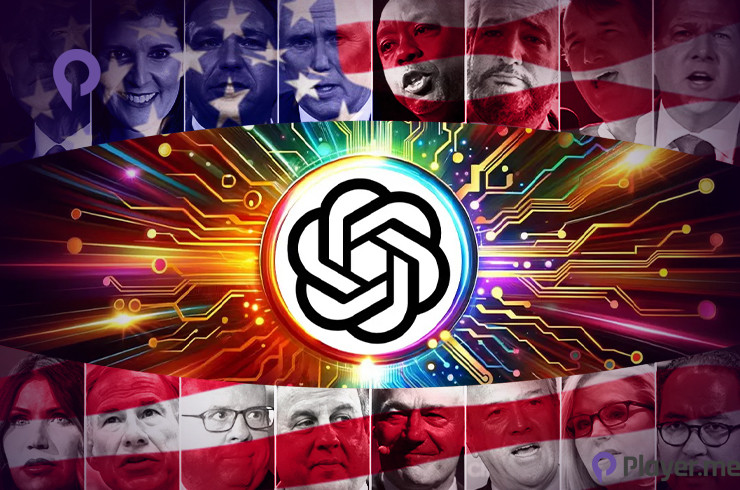Artificial intelligence company and ChatGPT maker OpenAI has outlined its plan with new policies and tools to address fears that its technology will meddle with misinformation and abuse ahead of the 2024 US presidential elections and others occurring throughout this year.
In a statement published on its official blog post, OpenAI mentioned that it will ensure its tools function for “accurate voting information, enforcing measured policies, and improving transparency”. In addition, OpenAI added: “We have a cross-functional effort dedicated to election work, bringing together expertise from our safety systems, threat intelligence, legal, engineering, and policy teams to quickly investigate and address potential abuse.”
The implementation of new tools comes a few months after OpenAI CEO Sam Altman raised concerns regarding what AI could bring to future elections as we had recently just seen how Pakistan’s ex-PM Imran Khan started his election campaign from prison using AI voice clone and the large number of deepfake video adverts of Sunak on Facebook.
What New Tools Are OpenAI Implementing?
The 2024 US presidential elections are arguably the biggest shift in election history in terms of deployment of technology. Why so? It is because this year will be the first massive election cycle in which generative AI tools will be widely available to voters, governments, and political campaigns across 50 or more countries globally. Therefore, OpenAI is taking measures to verify news and image authenticity programs to ensure users get access to high-quality information throughout elections.

For instance, OpenAI will prohibit ChatGPT, Dall-E, and other OpenAI tools users and creators from using OpenAI tools to impersonate candidates or local governments and using OpenAI tools for campaigning or lobbying. Moreover, users are also not allowed to use her OpenAI tools to prevent voting or misrepresenting the voting process.
Additionally, OpenAI will continue integrating its ChatGPT platform with real-time news reports from around the world with attribution and links, continuing its success with German media giant Axel Springer last year. The AI company states that it will be working with the nonpartisan National Association of Secretaries of State to direct ChatGPT users to CanIVote.org, one of the best U.S. voting authorities for authoritative information on U.S. voting and elections.
Lastly, OpenAI mentioned the company is experimenting with a new “provenance classifier” tool that can recognise AI-generated images created with DALL-E. The movement comes after OpenAI joined tech giants such as Microsoft, Adobe and Amazon in the Coalition for Content Provenance and Authenticity (C2PA) to add digital credentials to provide trustworthy digital content.
What Is the Coalition for Content Provenance and Authenticity (C2PA)?
In simpler terms, C2PA is a Cooperative Development Foundation project whose mission is to develop technical specifications that can establish the provenance and authenticity of content at scale, allowing publishers, creators, and consumers to trace the origin of media. It is a two-year collaborative journey of research, design, development and iteration of the “icon of transparency,” a symbol to provide every party with ethical digital content.
The main activities of C2PA include:
- Applying industry requirements to the development of content lineage specification
- Ensuring that the specification can function in a way that respects privacy and personal control of data and promotes the availability of tools to a wide range of organisations
- Ensuring that the specification meets appropriate security requirements
- Promoting selected specifications to become global standards
- Global adoption of digital provenance technologies through target industry devices, systems and services, including social media and messaging platforms
- Ensuring content accessibility is not adversely affected by digital provenance technologies
To ensure its Content Credentials “CR” icon reveals a “digital nutrition label”, many massive brands and industry leaders, such as OpenAI, Adobe, Microsoft, Amazon, and many more, will bring a new level of recognisable digital content transparency from creation to consumption. For a more detailed explanation of the coalition, click here.
Could OpenAI Implement the Tools in Time for the Elections?
If we are talking about the U.S. presidential elections specifically, OpenAI will have ample time to prepare and implement its tools as it is in November. However, if we are talking about countries such as Indonesia and Russia in the next two months, it seems unlikely. Why so? It is because the AI company is still experimenting with its provenance classifier and will only start distributing it to the first testers.

In response to the long wait time, OpenAI has stated that it will adopt a work-and-learn mindset regarding the effectiveness of its tools. As generative AI technology is still new and continues to evolve daily, “we work to anticipate and prevent relevant abuse — such as misleading ‘deepfakes,’ scaled influence operations, or chatbots impersonating candidates.”
AI And Technologies Implications on Elections
Even as technology has helped political leaders extend their reach in a much more efficient way, it has also been a difficult menace to handle. Already, social networking platforms are being misused to spread false propaganda. These companies are still grappling to address this menace. Their response in such events has been slow and too little to create an immediate impact. It’s also worth mentioning that these companies have long leveraged machine learning algorithms to tackle this. Evidently, they’ve been a step behind those misusing them.
Despite promises, it’s fair to be concerned about the risks Gen AI poses. As mentioned above, there have been multiple incidents of their abuse. Things like voice cloning and deepfakes just make things worse. Moreover, it’s a tad disappointing that emerging markets aren’t on OpenAI’s radar as of now, though potentially they’re likely to be more on the receiving end. And who’s to say the misinformation will not be travelling cross-borders as seen in the previous US polls.
Therefore, it remains a question of how effective the new OpenAI tools can be in preventing misinformation. For updated information regarding tech, AI, gaming and crypto stories, follow our Facebook and Twitter pages for the latest coverage.
Author Profile
Latest entries
 GAMING2024.06.12Top 4 Female Tekken 8 Fighters to Obliterate Your Opponents in Style!
GAMING2024.06.12Top 4 Female Tekken 8 Fighters to Obliterate Your Opponents in Style! NEWS2024.03.18Elon Musk’s SpaceX Ventures into National Security to Empower Spy Satellite Network for U.S.
NEWS2024.03.18Elon Musk’s SpaceX Ventures into National Security to Empower Spy Satellite Network for U.S. GAMING2024.03.17PS Plus: 7 New Games for March and Beyond
GAMING2024.03.17PS Plus: 7 New Games for March and Beyond GAMING2024.03.17Last Epoch Necromancer Builds: All You Need To Know About It
GAMING2024.03.17Last Epoch Necromancer Builds: All You Need To Know About It





